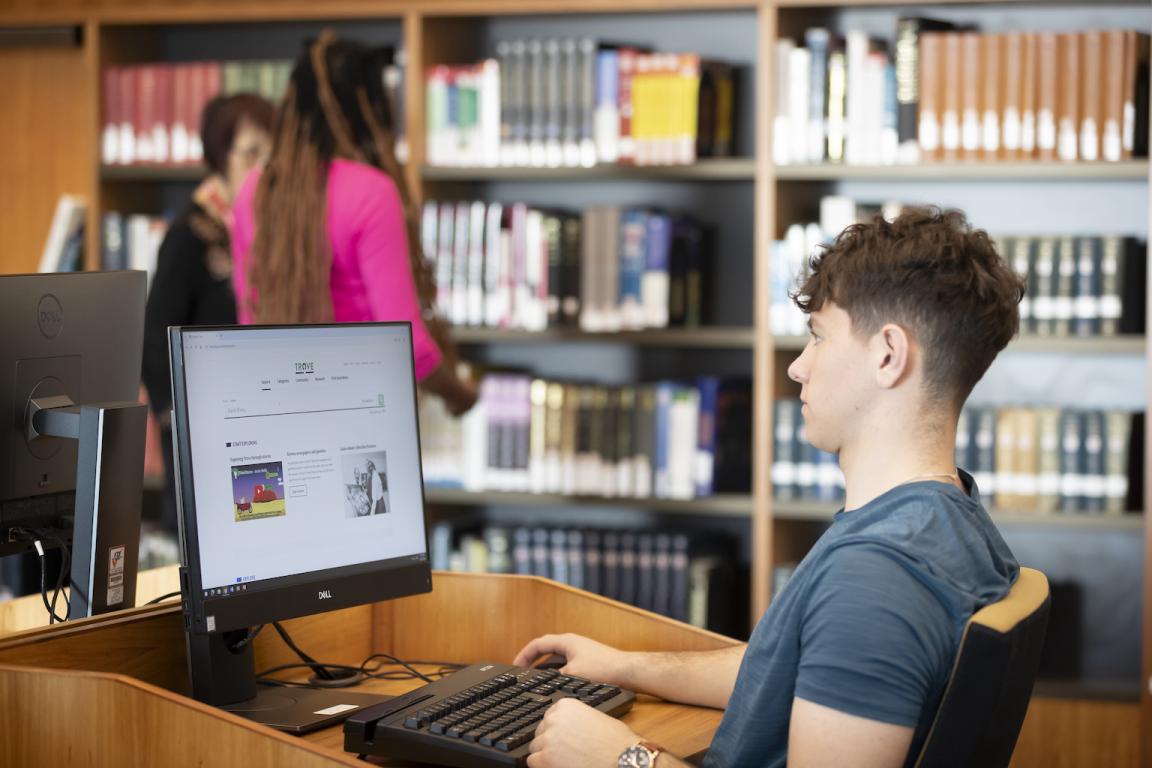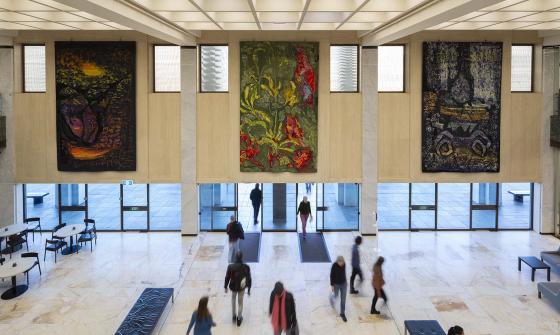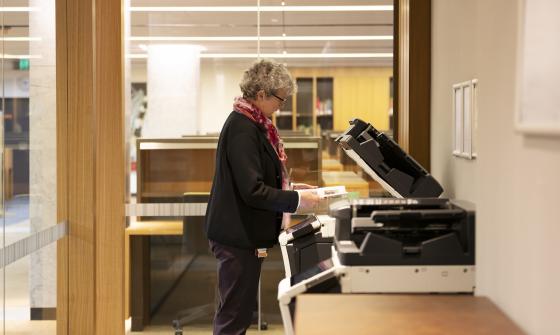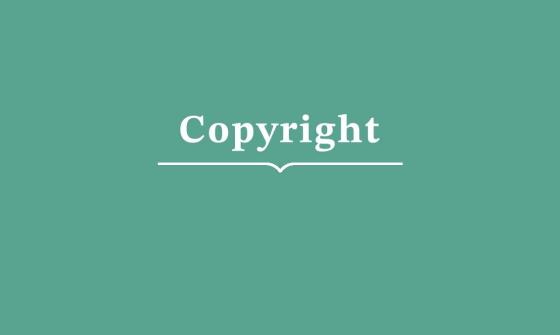Computers, internet and wifi
Free access
You can access the internet through our computers in the Library's reading rooms. Our computers operate Windows 11, and are installed with:
- Microsoft Edge web browser
- Microsoft Word
- Microsoft Excel
- Microsoft PowerPoint
Our free wifi network is available throughout the Library. No login or password is required, but there are terms and conditions which you must read and agree to in order to connect.
In the reading rooms, we provide print, photocopying and scanning facilities.
Acceptable use of electronic resources
This policy applies to visitors using electronic resources at the Library.
The Library provides free public access to electronic resources for study, reference and research purposes.
Electronic resources are available via personal devices, public computers and other equipment in the Library’s reading rooms.
All Library computers are situated in public areas, within clear view of staff. Surveillance cameras operate and security staff regularly patrol the reading rooms.
Acceptable use
Visitors may access the internet and the Library’s electronic resources via the public computers in the reading rooms or the Library’s wireless service (Wi-Fi) during opening hours. In order to use the public computers or connect to the Wi-Fi, visitors must read and agree to terms and conditions.
Visitors are requested to restrict their use to research-related activities. Use of Library computers to access forums or games or to conduct financial transactions (other than purchases from the Library) is therefore actively discouraged.
Staff should be notified of any problems experienced using electronic resources.
Where visitors are using personal devices and networks, they should abide by this and related policies, including the Code of Conduct for readers and visitors.
Inappropriate use
Inappropriate use includes but is not limited to examples provided in Definitions.
Anyone found using electronic resources inappropriately will be requested to cease using the Library’s electronic resources. Those who fail to comply with staff directives will be asked to leave under National Library Regulation (2018) Section 14, "Powers of authorised officers—directions to leave"
Use of electronic resources by children
The Library is compliant with the Commonwealth Child Safe Framework. We recognise that there are particular issues concerning access to the internet by children and exposure to harmful online content.
Parents or guardians play an important role in protecting children from online harm, including by supervising their access to the internet and referring to detailed advice and support available through the eSafety Commissioner.
Children under the age of 12 who use electronic resources in the Library’s public spaces must be accompanied by a supervising, responsible adult.
Use of online Library material
When using, copying or sharing material online, it is the individual’s responsibility to ensure they do not breach the provisions in the Copyright Act 1968 or other access conditions and rights.
Some Library material holds the cultural and intellectual heritage of Australia’s Indigenous People and rights access and use may be determined by the wishes of Indigenous Cultural and Intellectual Property (ICIP) holders or require consultation with relevant First Nations’ communities. Those wishing to access and use this material are expected to comply with the Library’s Indigenous Cultural and Intellectual Property Protocol.
Visitors should ask Library staff about access conditions before downloading, copying and/or sharing online Library material.
Library responsibility
While the Library endeavours to maintain the security of its computer systems, the internet is an inherently insecure environment.
The Library uses filtering software to block known offensive websites, as well as gambling and gaming sites, but responsibility for adherence to this policy resides with the individual.
The Library:
- does not guarantee the authority or accuracy of any information found in electronic resources.
- does not accept responsibility for any losses arising from the use of, or technical difficulties with, the Library’s information and communication technology systems (including loss of and unauthorised access to user’s data).
- is not liable for any third-party content on the internet that users may find offensive, upsetting or inflammatory.
- is not liable for any security breaches, including viruses or malware, suffered by visitors when using Library equipment or for any loss or damage suffered as a result of the unavailability of Library equipment or the Internet, including interruptions during use.
Definitions
| Term | Definition |
|---|---|
| Authorised officer | Authorised officers are statutory officers appointed under the National Library Regulations 2018. They have various powers and functions, in particular, in relation to regulating conduct on Library property |
| Child | A person under the age of 18 |
| Electronic resources | For the purposes of this policy, electronic resources refers to the Library’s ICT infrastructure, applications, and devices, including the Library’s website, catalogue, Trove, subscription resources and the internet accessed via public computers and other equipment in the reading rooms or via personal devices used in the building and on the surrounding podium |
| Inappropriate use | Describes use of electronic resources provided by the Library that may cause
|
| Library public spaces | The Library’s public foyers, galleries, reading rooms, public venues, outdoor areas or any other area that the Library has made available to the public. The limit of the Library’s public spaces is defined as the outer edge of the podium. |
| Library staff | Eemployees, contractors, individuals undertaking work experience or Library volunteers |
| Visitors | Any person, not including Library staff, who uses Library collections, spaces or services, or any person who may visit or transit through Library premises. |




